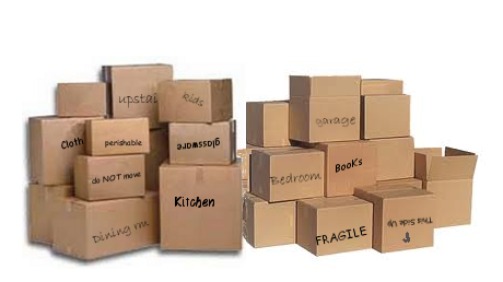The kitchen should be the first room to be unpacked and organized primarily because it’s the one area of the home where most things happen, including meal preparation and family get-togethers. This can be difficult for small kitchen spaces or for larger areas that have little counter space or few storage areas.
Here are a few quick ideas:
- The items you should unpack first? Pots, cutting boards, knives, silverware, dishes, dish towels, spices, etc… These are the heart of the kitchen.
- Gather all the boxes marked “kitchen” into one area. If you’ve carefully labeled the box to reflect its contents (pots, silverware, etc.), then you should have a pretty good idea of what is contained in each box.
- Unpack keeping in mind that the sink is the main work zone. Since the sink is the area that is used the most, and the stove being second, gauge the cupboard and drawer space surrounding the sink. Store the items you use daily in an easy and reachable distance from the main work area.
- Arrange items in cupboards and on shelves. The sorting method described previously also applies to cupboard space. Plates, cups, glasses, and cereal bowls that may be used daily should be placed on shelves that are at eye level or lower. Since glasses are used more than plates, they can be placed in a cupboard closer to the sink.
- Pots and pans should be stored close to the stove, along with their lids. You can also use the drawer under the stove for larger items that you may not use on a daily basis.
- Store items that aren’t used daily in cupboards above the fridge or stove. Heavier items should be stored on shelves near the floor. They’ll be easier to access.
- Cleaning products. If you have young children or curious pets, store all cleaning supplies out of their reach. Otherwise, soaps, detergents, and cleaning agents can be kept below the sink.
- Put away special items. Good dishes, china and other special occasion items can be stored in a china cabinet, buffet table or in shelving that you won’t be accessing daily.
- Store canned goods and dry food stock separate from dishes. Spices can be kept close to the stove. Just remember that spices need to be kept in a dry, cool place to maintain freshness.

